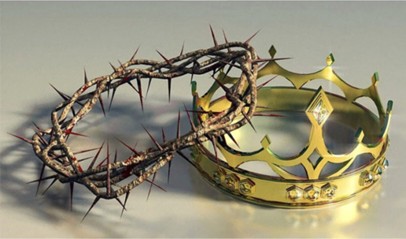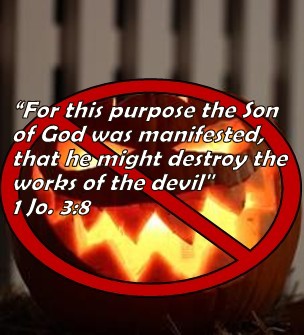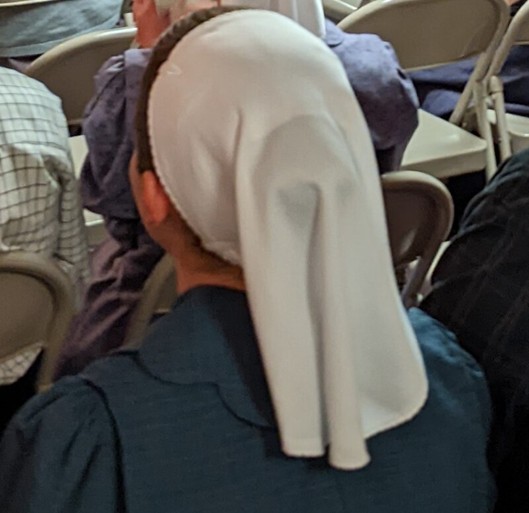
-transcribed from a sermon preached by David L. Martin
I count it a privilege to be with you this morning. Please turn with me to Ephesians chapter 2. This morning we want to look at a three-fold subject. It is “Grace, Faith, and Works.” I know of no passage that better shows the relationship of these three words. We’re going to read verses 8 to 10.
For by grace are ye saved through faith; and that not of yourselves: it is the gift of God: Not of works, lest any man should boast. For we are his workmanship, created in Christ Jesus unto good works, which God hath before ordained that we should walk in them.
These three verses, verses 8 to 10, summarize “Grace, Faith, and Works”. We find those three words in them.
Grace
We’d like to look first of all at the word grace. Grace is God’s resources to make the right things happen. You can sit in your house and dream about how to make it bigger – how to put a wing on here, and some other things on there, how to improve it. But if you don’t have the money, it won’t happen. You can dream all you want. You need resources. Well that’s the illustration. The application is this: God doesn’t just have to wish that He could rescue us from sin. He can actually do it. Grace is the resources at God’s disposal to make sure His plan of salvation will be carried out in the individual life. That’s because God can afford it – God does have the grace to do it. Grace pulls us out of sin into the Christian life, and grace keeps us going in the Christian life. God can do it, God did do it, and God does it. It’s not just God’s dream.
Grace is inexhaustible. We sing sometimes about the “grace that is greater than all our sin”. And the Bible says “where sin abounded” (and I think we all agree that sin abounds in the world around us, and I think we have all come to the point where we realize sin abounded in our own hearts) “where sin abounded, grace did much more abound”. Inexhaustible! In Life Songs we sing about “Wonderful grace of Jesus”, how it “reaches the most defiled… broader than the scope of my transgressions”. How broad is the scope of your transgressions, how broad the scope of mine, well this is broader. The Lord can take care of anything! You think of the most hopeless person you can think of, the most unsaveable, and the Bible says God can save that person.
Grace also is greater than all of our circumstances, and some of us have had some very unfortunate circumstances. Some of you knew Amos Rudolph; he just died a week ago. He lived a normal life until he was 41. He lived the next 41 years of his life using a wheelchair. He had an accident; he was crippled. His circumstances were very very difficult. And some have had even more serious circumstances than that. In the past year there was a woman who passed away at the age of 102, I think. She was deaf since she became ill at the age of 38. Her illness passed away but her deafness continued. There’s a book that has come out about her just recently called Vera’s Journey. Some of you may have read that; you’re acquainted with it. Well, it is said that if a person becomes deaf in adulthood it’s a worse shock to him than if he goes blind, or even if he loses the power of all his limbs at once. Going deaf is extremely devastating. But she was able to by the grace of God rise above those things.
And the grace of God is known to people around, that He can do wonderful things. I read about her years ago when she was still living. And if I have the story right, after she became deaf, her husband took her to a place where people could be taught to read lips. She wanted to do that, so she could communicate. And he went in first, left her in the car, and talked to the people there, and the experts said to him, “No, people who become deaf during adulthood are generally unreasonable. You can’t work with them anyhow.” He said “Well my wife is a Christian.” And then they reconsidered. They thought that if she was a Christian, the grace of God (they probably never thought of the word grace but that’s what they knew), they figured the grace of God could do something for that lady that would make her livable, so that she could work with them and they could work with her.
Grace is something that’s greater than all our circumstances. The Apostle Paul went back to the Lord three times and said “Here’s my thorn in the flesh, can’t you please take it away?” And the Lord’s reply every time was “My grace is sufficient for thee.” And as we grow older and some of the disadvantages of old age come our way and we think “Lord, this can’t happen to me, not yet anyhow”, I think the answer comes back to us and says “Well, My grace is sufficient for thee.” I’m not saying there are no exceptions. But as a rule that’s often the way it works.
Grace is greater than all our enemies, people that wish us ill. Brave Gideon had 300 men; the Midianites had a host; but Gideon had the Lord with him; and so he had the most.
Grace is greater than any change we think that God can’t make in our lives. We are taught that sometimes to say when we see a very very unfortunate person (maybe he’s totally drunk), we look at him and we say “There, but for the grace of God, go I.” What do we mean by that? We mean that the grace of God makes the difference. And the grace of God could actually change that person and make him as well off as we are.
Grace is inexhaustible. Grace also needs no assistance. Now here we get into some fine points of doctrine. What is it that saves you if you are saved? And the answer is “Grace alone.” The grace of Jesus Christ, plus nothing. I believe that. I’m going to clarify that later, but I’m not going to back out. What saves you is the grace of Jesus Christ, plus nothing.
For an illustration, suppose that you are deeply into a ditch. A tow truck comes along, and he’s going to pull you out. If you help to spin your way out, then that is not a picture of God’s grace. But if you’re not only stuck, but your motor is ruined too, that is a picture of God’s grace.
Or, think of another illustration – suppose you’re having surgery. If you stay awake to give the surgeon advice, that is not a picture of God’s grace. But if the surgeon puts you completely out and ties you down including your hands so that you don’t get in the way whatsoever, that is a better picture of God’s grace. God’s grace needs no assistance from you.
Grace also is free. It is rare that people don’t accept a gift. If you offer something free, they’ll say “Well, I’ll take that, the price is right.” Well, grace is like that.
Sometimes, however, a gift is hard to take. Did you ever get a gift that was actually hard for you to accept? Some gifts make you feel about half an inch high. Especially the kind that you knew were expensive for the other person. Maybe in some cases you caused someone a great deal of inconvenience, you got him up at night, you cost him something in terms of time and energy and money, maybe to rescue you from a situation you got yourself into, and when it’s all over, he says, “Oh, there’s no charge.” It’s his gift to you. That is a little picture of what God does for us.
We are taught the acronym sometimes that GRACE is God’s Riches At Christ’s Expense. And I think there’s some value in saying it that way. But actually it was at God the Father’s expense too, and not just the Son’s. Both the Father and the Son spent quite a bit. The Bible says, “For God so loved the world that He gave His only begotten Son.” It wasn’t just Christ who gave His life, but it was God the Father who gave His Son.
Let’s think now about what we just read here in Ephesians 2:8-10. Let’s read that over again:
For by grace are ye saved through faith; and that not of yourselves: it is the gift of God: Not of works, lest any man should boast. For we are his workmanship, created in Christ Jesus unto good works, which God hath before ordained that we should walk in them.
Faith
Let’s go on to faith. I’ve held up grace pretty high this morning, but grace is helpless without faith. What did Peter say after he had said to the lame man at the temple, “Silver and gold have I none, but such as I have give I thee: in the name of Jesus Christ rise up and walk.” The man did. He rose up and walked. He was walking and leaping and praising God. People came together to see what was happening, and what did Peter say? “And His name, through faith in His name, hath made this man strong.” The name all by itself won’t work. The name of Christ all by itself will not work, anymore than a telephone will work if you don’t talk.
The Bible says that Jesus went to Nazareth, and could there do no mighty work because of their unbelief. The Bible says He marveled because of their unbelief. That’s right. The people there after their unbelief tied His hands. He couldn’t work. It doesn’t say He wouldn’t work, but He couldn’t work, because of their unbelief. Annie Johnson Flint wrote a whole poem about that, about the town in Galilee where Christ could not work. And then she ended up with this statement: “Omnipotence is powerless when men will not believe.” Omnipotence – we think of omnipotence as being all-powerful. But omnipotence is powerless when men will not believe.
I said earlier “the grace of Christ plus nothing.” But that’s not implying that we sit there stubbornly, daring the Lord to pull us out of the ditch. When the tow truck comes, we have to make it clear that we want to be pulled out. The same thing is true of the illustration of surgery which I gave a bit ago. We do have to commit ourselves into the surgeon’s hands. That is, in a sense, a work. But by “works” we don’t usually mean that. It does mean by faith. We come to Him, and we say, “Here I am, do what you need to do in my body to make my body healthy again.”
We often sing the song “Rock of Ages”. Did you ever think about it that that was written to emphasize the “grace plus nothing” concept? “Nothing in my hands I bring; Simply to Thy cross I cling. Naked, come to Thee for dress; Helpless, look to Thee for grace.” But that song proves another point too. “Simply to thy cross –” what? I cling! “Naked –” what? I come to Thee for dress! “Helpless –” what? I look to Thee for grace! We can’t get away from the part that we play. And that is what we call faith.
Faith is what humans do. When people came to Jesus asking Him for a miracle, He never asked them, “Do you have grace?” No! Grace was His department! He asked, “Do you have faith? Do you believe? Believe ye that I am able to do this?” Believe ye is faith. That I am able is grace. “Do you believe I have the grace?” To the father of the child who was haunted by a demon, He said, “All things are possible… If thou canst believe, all things are possible to him that believeth. It’s on you; do you have the faith, do you trust me?”
Now faith is a gift from God. I don’t want this idea that humans produce it, so much as they exercise it, because even faith, the ability to have faith, is a gift from God. That’s what Ephesians 2 says here. “By grace are ye saved through faith, and that not of yourselves.” I think it means that faith is not of yourself. There was a time when we didn’t even exist. When God brought us into existence with all our human faculties, He gave us a little bit of faith, and in effect He says, “Now, you exercise that faith. I’m giving you a little bit, a capacity for faith, now you get busy and you exercise that.” Do you have faith? Well, are you exercising it? The ability to believe is actually a part of God’s grace. It’s a gift from God.
Now faith involves commitment. No halfway business. Faith doesn’t just stick its toe in the water. It is a complete commitment.
Years ago I had a teacher who talked about some fellow who walked on a tightrope across a gorge or a river or something, pushing a wheelbarrow ahead of him on the rope. So he did that, and then he said to the crowd that was watching, “Do you believe I can do this?” “Well yes we believe it – you just did it.” Then he said, “Jump into the wheelbarrow!” Would you have done that? Well, I wouldn’t have done it, because there would’ve been no good reason to do it. But if there was a forest fire raging at my back, and if this were the way to escape, then I would do it. I would commit myself into another person’s hands. And that is what we do when God says, “Do you believe I am able to do it?” He doesn’t have a wheelbarrow for us, as such, but He does have a plan that He wants us to, in a sense, jump into, commit ourselves completely to. Of course faith recognizes its own helplessness. Suppose now that I got into this man’s wheelbarrow; do you think he would have any directions for me before we left for the opposite shore? I think he would say, “Don’t you dare do a thing to help. You got into the wheelbarrow. Don’t try to balance the wheelbarrow. Your part is to sit still and to trust me.” That’s faith.
Faith recognizes its own helplessness. But faith unleashes great power as well. “As many as received Him, to them gave He power to become the sons of God.” We think of power in terms of what rockets can do, or airplanes, or great explosives, and so on. I can think of no greater power than the power to become sons of God. Nothing is more impressive than that! Faith unleashes great power. It doesn’t take much to release the power that takes you down the road. Neither does it take much in terms of releasing the power of God. It doesn’t take roaring powerful prayers to release the power of God. It takes a quiet acceptance of what God can do in your life, and the great power comes into your life. As many as received Him – that’s a very simple quiet thing to do – to them gave He power to become the sons of God.
Faith shows up in surprising places. The people who are least familiar with the truths I am preaching might be the ones who have the most faith. There might be someone who came off the street this morning who actually puts the rest of us to shame, because he has more faith than any of the rest of us. Think in the Old Testament of the man called Naaman. Naaman came from a far country, came from a heathen land, under heathen circumstances, ignorant, and he had more faith than the people right around him. Jesus, talking to His own people at Nazareth, made that same point. He was talking to them like I am this morning; I’m talking to my own people. He was talking to His own people – His own hometown as a matter of fact – and He said “Really, people like Naaman put people like you to shame, because he came from a long way off to get his leprosy healed, and people right there, who were living right in Samaria, who were lepers and had the need, didn’t have the faith.” He gave another illustration too; He said, “There were many widows in the land of Israel, when there was a famine for three and a half years, but unto none of them was Elijah sent, but unto a widow way out, lived in Zarephath, wasn’t even a part of the land of Israel, and she was the one who got the help, because she was the one whom God saw had the most faith.”
The far-out people might make out the best in some cases; the desperate people end up making out the best. Some of the most unfortunate people are those who never get desperate before God. I think most of us can testify that when we came to the point of conversion there were some moments of desperation. It certainly was that way for me, maybe for you too. Maybe we ought to remember some of that desperation, and pray like we prayed back then when God came into our hearts. Maybe your testimony is different from mine, I don’t mean to impose my experience on you, I simply mean to point out that sometimes the desperate people end up making out the best.
Well before we forget, Ephesians 2:8-10, let’s read it over again, we want to go on, after a bit, to look at works, but let’s think now again about Ephesians 2:8-10:
For by grace are ye saved through faith; and that not of yourselves: it is the gift of God: Not of works, lest any man should boast. For we are his workmanship, created in Christ Jesus unto good works, which God hath before ordained that we should walk in them.
Works
Let’s think now about works. Works do not save us. Not at the moment we became saved, not at any other time either. Never ever do works save us. Works never wiped away sin. A good deed never wiped away a sin. The Apostle Paul wrote to the Galatians, and in effect he said, “I see you falling back into a works religion. Are ye so foolish? Having begun in the Spirit, are ye now made perfect by the flesh? Have the rules changed now that you’re Christians?” Well no, it’s the same thing, what saved you is what’s going to keep you saved; it’s not going to be works. Even religious works will not save us. Jesus said at the close of time people will come to Him and say “Lord, Lord, haven’t we worked? Have we not prophesied in Thy name, and in Thy name cast out devils, and in Thy name done many mighty and wonderful works? And then will I profess unto them, ‘I never knew you; depart from Me, ye that work iniquity.’” Even religious works don’t count. There are works that do count, but any work that is not a fruit of a relationship with God does not work.
Getting saved focuses on the Lord’s works. Remember it says here, “Not of works, lest any man should boast.” Sometimes people do boast. People drop information about all the good deeds that they have done. When really we ought to be focusing on what the Lord does for us. The disciples came back to Jesus after they had been on a preaching tour and they said, “Lord, even the devils are subject unto us through Thy name!” And Jesus replied, in effect, “That’s good, that’s wonderful. But in this rejoice not, that the demons are subject to you, but rather rejoice because your names are written in heaven. Don’t rejoice because of what you can do for the Lord. Look at what the Lord has done for you.”
Now, one could say, “Well then what part do human works play? Is there any place at all for them?” Well, it says here, “For we are His workmanship”, then it says, “created in Christ Jesus unto good works, which God hath before ordained that we should walk in them.” Works doesn’t produce salvation, but salvation produces works. For an illustration, do you have very small children in your home? Do they earn their keep? Well obviously not. But we do expect them to come when they’re called, and to pick up their toys, and to speak when they’re spoken to, and to be reasonably cheerful. These are all things that we expect them to do. Those are works. Obedience is the very best way to show that you believe.
In the book of James we have the statement, “By works a man is justified, and not by faith only.” Someone made the comment there’s only one place in the Bible you find the two words faith only. And that’s where it says “not by faith only”. The Bible says (looking ahead at the time when the books are opened) at the last judgment, the books were opened, and they were judged every man according to their works. Again, Jesus said, “I come quickly, to give every man according as his works shall be.”
I like the definition of faith that “faith is taking God at His word and acting accordingly”.
So we have to steer away from two extremes. The one extreme is to say, “Well you’re righteous by obeying the law.” And that’s not true. In Galatians 2:21 Paul said, “I do not frustrate the grace of God, for if righteousness come by the law, then Christ is dead in vain.” Obedience to the law is not what we’re looking for. It is not what saves us. It’s not what makes us righteous. Think of it this way, that we frustrate people when we don’t know how to do something, but we won’t let them do it for us. And we frustrate the grace of God, when we don’t know how to save ourselves, and won’t let God save us. That’s one extreme.
The other extreme is this: “Who cares how you live? Works don’t matter at all.” The Apostle Paul addressed that as well when he said, “Shall we sin, that grace may abound?” And the answer of course is “God forbid!” Jude warned about that to the people he was writing to when he said “There are some people who turn the grace of God into lasciviousness.” Lasciviousness is “license to sin”. There are people living in sin today, of whatever form, and they say, “Well, it’s all under grace. God forgives, so it’s all under grace.”
Do works matter? Absolutely they do matter. Suppose you’re at a yard sale, you find a small item, it’s only 10 cents, but you’re not quite sure you’d want to spend 10 cents on it. But you’re always reassured if someone puts a little sign on it that says – one word, what is it? “Works!” It’s when people don’t see a man’s religion working that they say, “I would not give 10 cents for that man’s religion.”
We don’t have a works religion. But we have a religion that works! God works in us, and He expects to see some works coming out of us too! If a man’s religion doesn’t improve his behavior it’s not much of a religion. People can talk about how works have nothing to do with our relationship with God, but virtually no one acts that way. Virtually anyone who professes Christianity does draw the line somewhere, and there are things he will do or won’t do because he knows it will affect his relationship with God.
Titus chapter 2 says “The grace of God that bringeth salvation” – that’s what God does – “hath appeared unto all men, teaching us that” – is it all up to God? No! – “teaching us that, denying ungodliness and worldly lusts, we should soberly, righteously, and godly in this present world.” That’s works. That’s our religion working out through us.
Again, we have the statement made, “Let us have grace, whereby we may serve God acceptably with reverence and godly fear.” That’s works.
Jesus emphasized this in the gospel when He said, “Why call ye Me, ‘Lord, Lord’, and do not the things which I say?” He said if you’re like that, you’re like a house on the sand, as opposed to a house on the rock. Again He said, “Watch out for people who are false teachers.” He said, “You shall know them by their fruits.” The outward expressions.
Of course there has to be a life within. I don’t want anyone to misunderstand. The life within is what brings those fruits out. We don’t hang fruit on a dead tree. Rather we want a living tree that produces fruit. But produce fruit it must. Because God will not have patience very long with someone who is content simply to exist as a Christian, and not produce anything, and not do a thing. I was in a store one time, and the lady at the counter said to one of the customers, “How are you?” And he replied, “I am.” I thought it was kind of funny and amusing. But you know, a Christian who gives that testimony won’t exist as a Christian very long. He can’t just simply say “I am”. He has to be doing… there’s works that are going to flow out. There’s going to be fruit. If you don’t do that, you’re going to be like the tree where the master came along, saw this tree, and it wasn’t producing. He said to the servant, “I’ve come back three years now, and there’s nothing on this tree. Cut it down, why cumbereth it the ground – why is the ground bothering to support it if it’s not doing anything?” And his servant said, “Well, give me one more year, I’ll dig around it, I’ll fertilize it, and we’ll see what happens. But then,” he said, “if it doesn’t bear fruit, we’ll cut it down.”
Jesus came along to a fig tree (this happened personally to Him), He saw a fig tree, He saw leaves on it, and He thought, well there’s probably going to be figs too. He went and checked, and there were no figs. And it didn’t take long, it didn’t take Him three years. He cursed that fig tree and said “No fruit grow on thee hereafter.” A Christian who professes to be alive but doesn’t bear fruit won’t live very long. Somehow the life produces the fruit but there’s something about bearing fruit that is part of continuing to be alive.
Let’s come to Ephesians 2 again:
For by grace are ye saved through faith; and that not of yourselves: it is the gift of God: Not of works, lest any man should boast. For we are his workmanship, created in Christ Jesus unto good works, which God hath before ordained that we should walk in them.
In conclusion: John Wesley, who lived during the 1700’s, made this interesting statement: “Do all the good you can.” Did you catch that first word? Finally it’s this: we don’t try to balance faith and works. We don’t oppose them. We don’t have faith on this side of the seesaw and works on that side. They go together. Faith works! That’s all. Faith is the subject, works is the verb.







